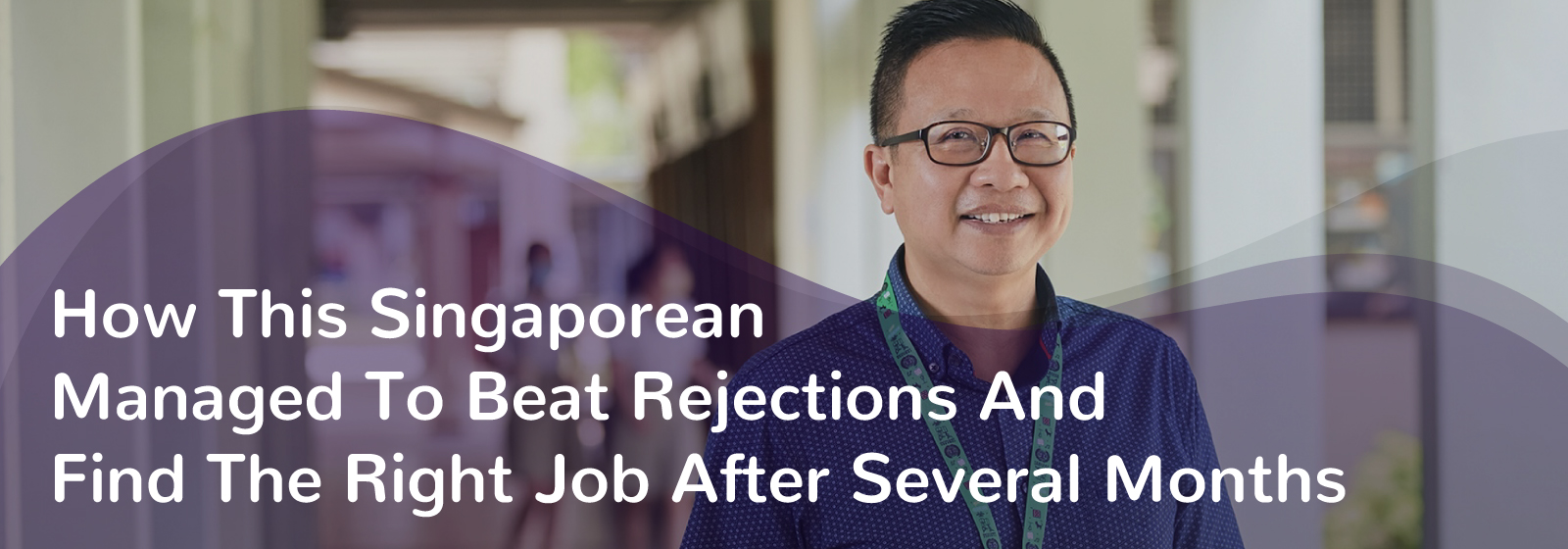In Singapore, the definition of being long-term unemployed (LTU) includes those who haven’t been able to find work for 25 weeks or more, according to the Ministry of Manpower (MOM). Of course, there are differences in challenges the longer one stays unemployed.
Locally, the resident long-term unemployment rate has remained at 1.1% this year, according to the ministry’s recent Labour Market Report.
But for those going for months (or years) on end without success in their job search, the effects can be crushing.
Their families can use up life savings, and the unemployed can feel their confidence and self-worth zapped, due to their inability to find work and contribute financially to the household.
This can lead to the unemployed withdrawing from their social circle as well, out of embarrassment or fear of telling others about their predicament.
On top of this, it can be hard as the job search lengthens. During interviews, unconscious biases can also become a stumbling block. Some interviewers can make presumptions over why the unemployed have been unable to find a job, and a gap of unemployment on a resume becomes a challenge to explain.
What happens when months of unemployment stretch to years?
It does make a difference how long someone has been unemployed, in terms of how easy it takes to bounce back in finding a new job or career.
Wilson Chia, an Employer Engagement Manager at AKG (formerly known as Maximus), a career matching provider under Workforce Singapore, shares: “MOM’s definition for the LTU is six months.
To dive deeper, I believe a general guide for most in the category would form along the lines of those unemployed for under two years, under five years, or over five years.”
The duration would matter to employers, Wilson explains. For example, those who have been unemployed for six months, but under two years, could still be relatively well-attuned to their industry’s market conditions, skills, tools and work dynamics, and may be assessed as easier to integrate into a new company’s work culture.
Anything longer than that, and it becomes important for jobseekers to pick up skills during the downtime, such as volunteering, self-improvement, self-study, and even hobbies, advises Wilson.
After all, in the eyes of the right employer, those may be skills worth highlighting.
Felicia Wee, an experienced career coach with Ingeus, a career matching provider under Workforce Singapore, shared some advice on acquiring the hard and soft skills that jobseekers need to get up to speed.
“In terms of soft skills, being clear, concise and focused will help in both appealing to hiring managers and human resource departments for the companies you want to join.
“Hard-skills wise, try to upskill in your targeted career direction, and perhaps take on pro-bono or short-term work projects.
“In my experience, it may take certain jobseekers close to three months to re-equip themselves with the neccesary skills, so it’s important to be willing to learn, unlearn and relearn to ensure you stay relevant and up to date!”
Mindset matters
Mindset issues can also be a challenge for the LTUs. Several common gripes include feeling overqualified, a perception of being too old, or not being able to find roles that match their perceived value and experience.
While some of these can certainly be real, more often than not, they are perceptions that hinder LTUs from moving towards a successful job search, reveals Wilson.
On the other end of the spectrum, being overly desperate to take the next job that comes along can also be a challenge, says Jesmin Tan, a Programme Manager at AKG.
“It is important to make a career decision not based on impulse, but on the basis of what can be aligned to your short and medium-term personal and career aspirations,” she shares.
“Otherwise, it can be hard to justify in subsequent job interviews why things didn’t work out, which can potentially dilute your professional credibility and motivations!”
Help is available
If the job search has been long and weary, don’t worry, there are options. WSG’s Career Matching Services have been supporting locals impacted by career transitions to find meaningful employment.
Part of the suite of services to assist include the opportunity to interact and work with career coaches, who can guide, advise and support those looking for employment.
Jesmin explains: “A career coach’s understanding of the recruitment and selection processes involved in the marketplace, as well as of different functional types and vertical industries, will help provide useful market knowledge for jobseekers to understand their career possibilities.”
We’ve also pulled together a quick guide for LTUs below, covering key topics that can help, such as what to do when the usual job-hunting playbook doesn’t work and what kind of skills upgrading matters if you’ve been unemployed for a while. We hope this helps, and best of luck with the job search!

Job Hunting Strategies: What Works, and What Doesn’t, for the Long-Term Unemployed
Don’t Pause Your Job Search During the Festive Season —5 Reasons Why!

Still Can’t Find A Job After Several Months? Here’s What Helped This Singaporean Succeed!

















